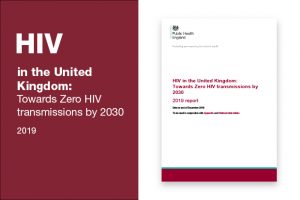Duncan Selbie’s Friday Message – 17 January 2020

Dear everyone
Health and wealth
Evidence continues to show that income remains the greatest determinant of health outcome, with findings published this week from a 10-year study led by University College London, conducted across the UK and North America, making the point again that health and wealth are two sides of the same coin. The Prime Minister and the Health and Social Care Secretary have committed to address geographic inequalities through investment, inclusive growth and prosperity in every part of England with a strong focus on the industrial Midlands and the North where these inequalities are most evident. The Secretary of State has also spoken of the 2020s as the “decade of prevention” and the forthcoming response to the consultation on the Prevention Green Paper will reflect these priorities and complement the major commitment within the NHS Long Term Plan to address inequalities in health outcomes.
Central to this is making the most of community-based assets and on Tuesday we published a briefing into whole systems approaches to community-centred action to address inequalities in health. You can read more about this in our blog.
HIV in the UK
This week we published our 2019 annual report on HIV in the UK, which is based on data to the end of December 2018. The report shows that after a peak of new HIV diagnoses in 2014, a rapid decline has been observed from 6,278 new diagnoses to 4,453 in 2018. The drop in HIV transmission has been especially large – 71% – among gay, bisexual and other men who have sex with men from an estimated 2,800 transmissions in 2012 to 800 in 2018. And the number of gay, bisexual and men who have sex with men living undiagnosed with HIV has halved since 2014 from an estimated 7,000 to 3,600 in 2018.
In 2018, however, an estimated 7,500 people were living with HIV and were unaware of this, and two in five of those diagnosed in 2018 were diagnosed at a late stage. Late stage infections have more than a ten-fold increased risk of death in the year following diagnosis compared to those who are diagnosed early and begin treatment immediately.
Through the excellent work of local government and the NHS, the scale-up of combination prevention (which includes the use of condoms, HIV testing in a wide range of settings, starting antiretroviral therapy (ART) as soon as possible if positive, and the availability of Pre-exposure Prophylaxis (PrEP) for those who are negative) across the UK is working. The goal of eliminating HIV transmission by 2030 depends upon sustaining prevention efforts and further expanding them to reach all at risk.

Chlamydia screening
In 2017, PHE sought advice from national and international experts on the aims, delivery, monitoring and evaluation of the National Chlamydia Screening Programme (NCSP). The review made recommendations to change the aim of the NCSP to focus on reducing harm from untreated chlamydia and on Wednesday, we began a 6 week consultation on this inviting interested organisations and young people to share their views. You can find out more here.
Local government
On Monday, the King’s Fund published a thoughtful independent report, commissioned by the Local Government Association, that assesses the success of the 2013 reforms to public health in England and local government’s role in leading on prevention and public health. The report takes the overall view that the move from the NHS to local government for many public health services has been positive, as is the opportunity it has in the medium term to influence wider local government policy and decisions.
We applaud local authority initiatives such as transport plans which consider a set of principles to guide future investment to serve more people, homes and jobs and develop long term strategies to achieve a modal shift towards public transport, cycling and walking. An example of how local government can drive improvements to the public’s health is set out this week in Birmingham City Council’s ambitious draft plan laying out its vision for the future of transport in the city; this will reduce transport’s damaging impact on the environment and support Birmingham’s commitment to becoming carbon neutral by 2030. This will be a radical change to the city and we look forward to working with Birmingham City Council in seeing this draft plan through to fruition.
Inaugural Temrt award
I am delighted to share the news that John Forde, PHE country lead and senior public health adviser in Ethiopia, has been awarded the inaugural Temrt ጥምረት award by Dr Alastair McPhail, the British Ambassador to Ethiopia and the African Union.
The concept of temrt, an Amharic word that means union, was introduced by the Ambassador as part of his vision to promote collaboration and partnership across the different UK government departments working there and is of singular credit to John and his excellence as a team player working to common, shared objectives. Ethiopia is one of four African nations receiving PHE support through our International Health Regulations strengthening programme.
PHE Porton
And finally, Jo Churchill MP, Parliamentary Under-Secretary of State for Prevention, Public Health and Primary Care, visited our scientific campus at Porton Down in Wiltshire on Wednesday. Our scientific and medical experts showed the Minister a wide range of our research and operational work that helps to keep the nation safe from the threat of infectious disease, including how we work safely with the most dangerous pathogens.
Best wishes
Duncan
View original article
Contributor: Duncan Selbie
